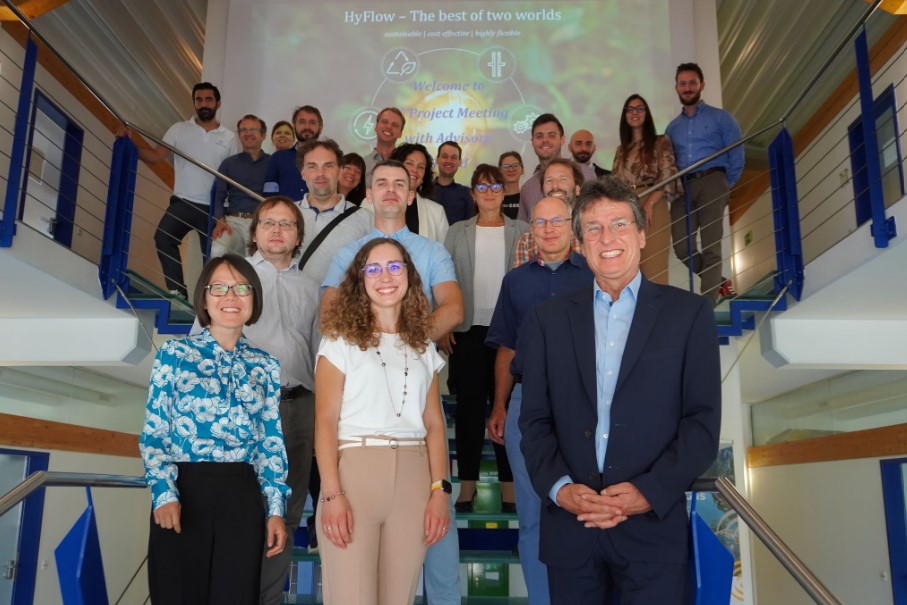Electricity storage systems are a key component in a renewable energy system. This is why the Energieinstitut an der JKU Linz is actively involved in research in this field.
In three years of research work, the consortium of the EU HyFlow project has developed an extremely powerful, sustainable and cost-effective hybrid energy storage system that can cover high energy and power requirements. To achieve this, the researchers combined a high-performance vanadium redox flow battery with a supercapacitor with an aqueous electrolyte solution. Using one of the demonstrators developed in HyFlow, large-scale consumers such as companies, municipal utilities, hospitals or data centres can determine the optimum system sizes for their own requirements. This involves determining which storage system is required with which capacity and output based on their existing electricity requirements. The project was carried out by Landshut University of Applied Sciences in cooperation with nine other partners from six European countries. The European Union subsidised the project with around 4 million euros.
The development of the hybrid energy storage system was accompanied by comprehensive analyses by the Energieinstitut an der JKU Linz, including a techno-economic assessment, where future market and cost reduction potentials were estimated, as well as a life cycle assessment to record the environmental impact along the entire life cycle.
Curious? Find out more here: https://hyflow-h2020.eu/.
Project consortium: Landshut University of Applied Sciences, Technologiezentrum Energie (TZE), Pinflow energy storage, Epic Power Converters S.L., Fraunhofer ICT, C2C-NewCap, Karlsruhe Institute of Technology (KIT), FREQCON GmbH, Energieinstitut an der JKU Linz, Università di Bologna, Bayerische Forschungsallianz (BayFOR) GmbH
This project was funded by the European Union as part of the Horizon 2020 research and innovation programme.



